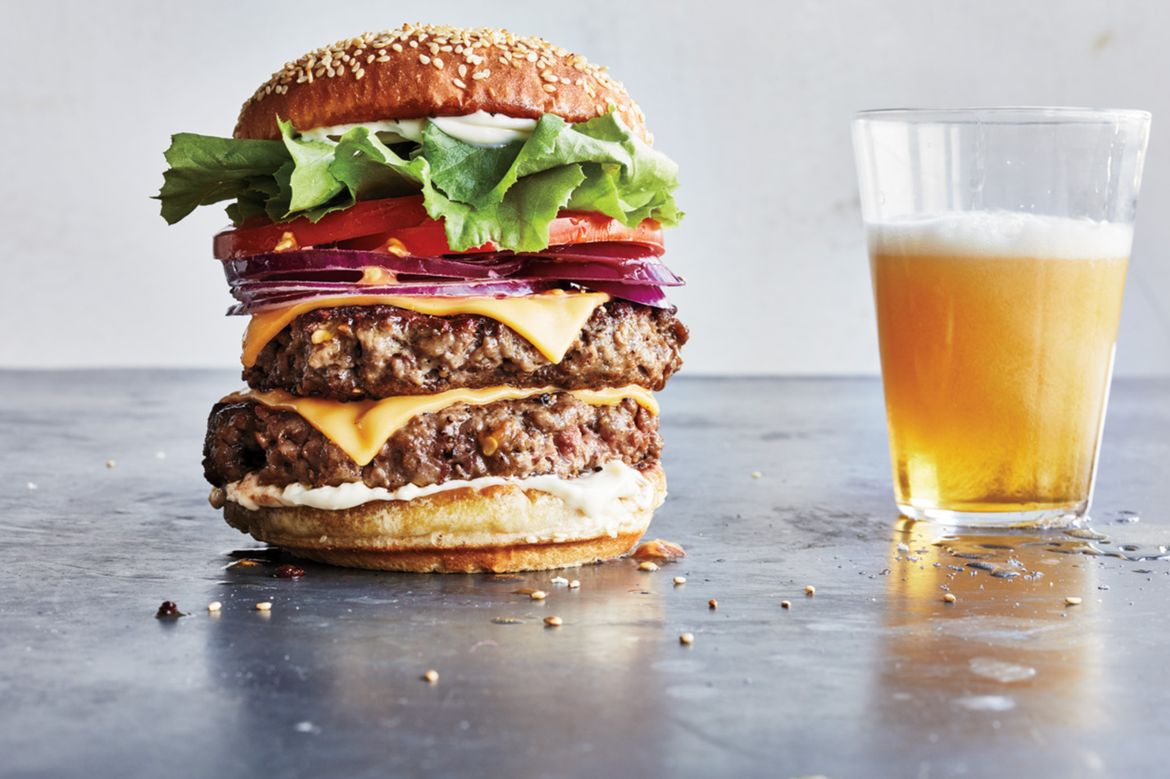Would you replace your weekly hamburgers with plant-based burgers if that would help make a significant dent in the amount of greenhouse gases contributing to climate change?
That’s not a rhetorical question. Cattle production is notoriously bad for the environment, and plant products that are uncannily similar to beef are becoming mainstream — led by Impossible Foods and Beyond Meat.
“There are so many omnivores in the world, [and] any dietary change they make will really move the needle on climate change,” says Jennifer Jay, a professor in the department of civil and environmental engineering at UCLA and an affiliated faculty member at the UCLA Institute of the Environment and Sustainability (IoES).
According to a 2018 Gallup Poll, only 5% of U.S. adults consider themselves vegetarian. That number rises to 11% among self-described liberals.
“If all the omnivores in the world switched half of their beef consumption to plant-based items, we would meet 68% of the reduction in greenhouse gases required by the Paris Agreement on climate change,” Jay says.
Cutting back on red meat consumption also curtails “deforestation and unsustainable crops that feed livestock,” says Michael T. Roberts, executive director of the Resnick Center for Food Law and Policy at the UCLA School of Law. As campaigns such as “Meatless Monday” grow in popularity, many people seem eager to cut down on consuming animal products — but not to give them up completely.
The big switch is beginning. Impossible Foods and Beyond Meat now distribute their burgers at large food chains, such as Costco and Safeway, and fast-food outlets, such as Burger King.
In 2018, Beyond reported $88 million in revenue, up 170% from the year before. Impossible just built a new production facility to keep up with the demand for faux meat. In their marketing, both companies are pitching taste as the key benefit for meat lovers.
At UCLA, Impossible Burgers are offered at the UCLA Meyer and Renee Luskin Conference Center’s Plateia, and Impossible’s plant-based ground meat is used in tacos and burritos at Rendezvous.
“We plan to expand the use of plant-based meat at student dining locations in the spring, and we are testing several new products,” says Al Ferrone, UCLA’s senior director of food and beverage.
On the business front, 53 UCLA undergraduates conducted group projects with Impossible Foods during fall 2019. “The students gathered data through samplings, surveys and other research to provide the company with recommendations about its communication and product strategy,” says Magali Delmas, professor of management at the UCLA Anderson School of Management and IoES. The projects were part of Delmas’ class on business and the environment.
As consumer demand rises, legal and policy issues are heating up. For instance, the National Cattlemen’s Beef Association is fighting the use of the word “meat” in plant-based food’s labeling and marketing. However, Roberts states, “Consumers understand that plant-based burgers are a meat substitute, and imitation foods are generally allowed to use the name of the food they imitate.”
Another hot-button issue: taxes. The Resnick Center is exploring “the idea of a tax on animal meat as a tool to reduce consumption,” Roberts says. To encourage the shift away from red meat, “the environmental benefits narrative is the easier sell,” he says.
Critics will also focus on the more controversial nutrition narrative, Roberts adds. Plant-based burgers have relatively high levels of salt, saturated fat and calories.
Nevertheless, the need to combat climate change is urgent. That’s why many experts are excited about potentially convincing meat eaters to replace their beloved burgers with, well, burgers.





